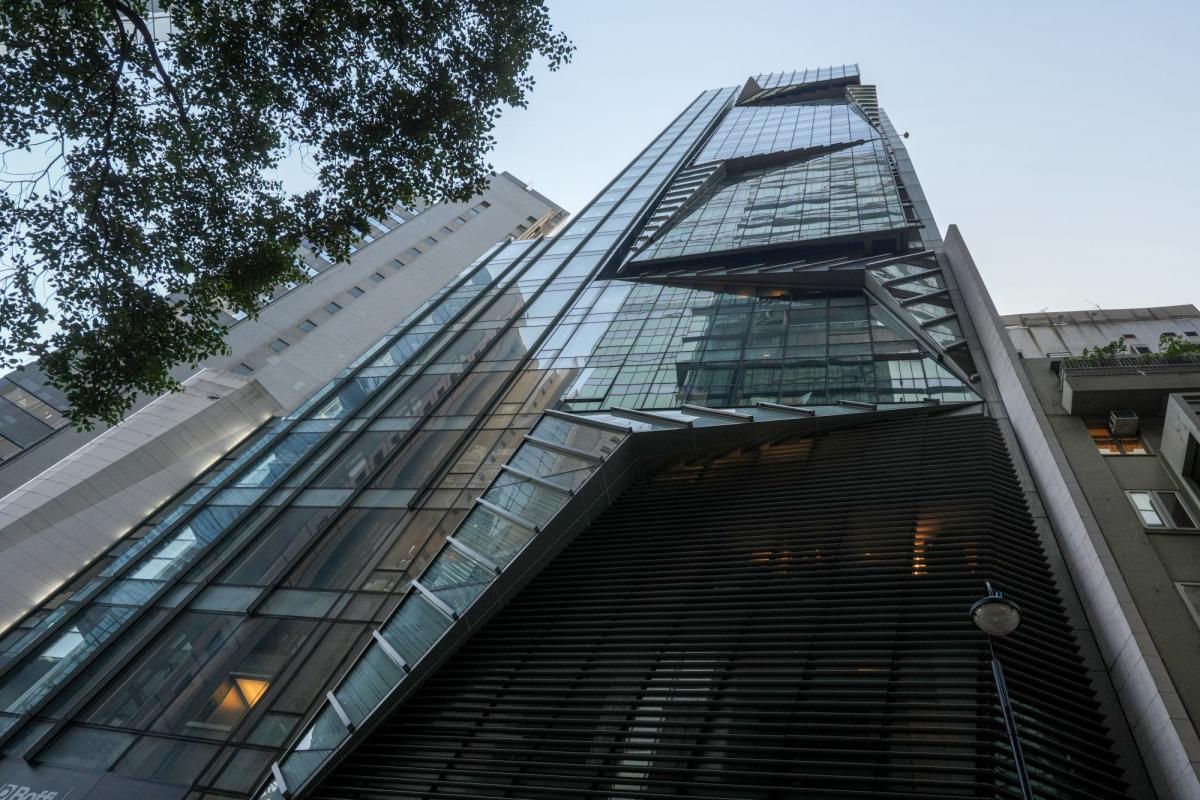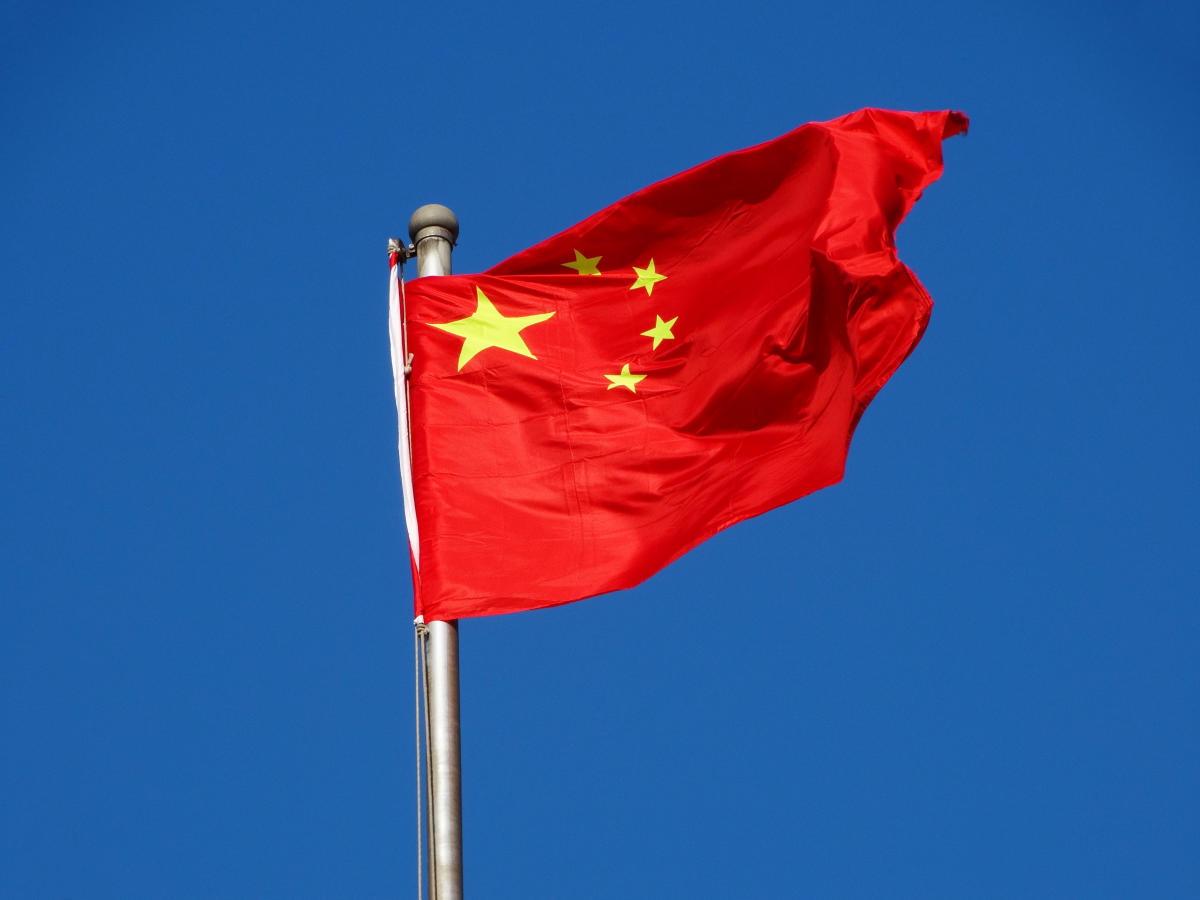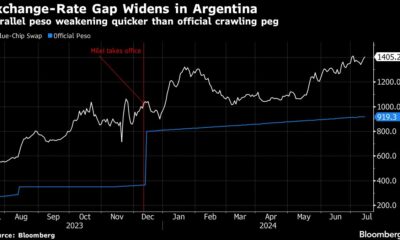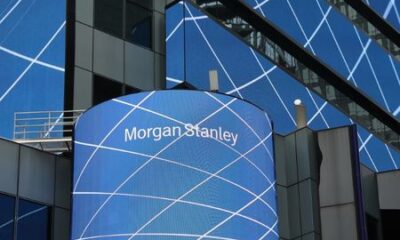Markets
In Hong Kong's industrial actual property market, 'all people has their very own fair proportion of ache'

Within the second of a two-part collection, Jiaxing Li, Aileen Chuang and Salina Li discover the results of excessive rates of interest and different components on the town’s industrial property market.
Within the coronary heart of Causeway Bay, a bustling Hong Kong buying district that was as soon as a costlier retail vacation spot than Fifth Avenue in Midtown Manhattan, a industrial constructing with shaky financing was lately thrust onto the market.
Cubus, a mixed-use constructing internet hosting tenants together with high-end sushi eating places and hair salons, was put up on the market final month. Homeowners of the 25-storey constructing, together with native actual property fund Phoenix Property Buyers and an entity associated to retail chain ‘s chairman Simon Kwok, obtained a mortgage from lenders led by Financial institution Sinopac, however have been grappling with debt repayments amid a decline in rental earnings.
Do you will have questions in regards to the greatest matters and developments from world wide? Get the solutions with , our new platform of curated content material with explainers, FAQs, analyses and infographics delivered to you by our award-winning crew.
Because the due date nears, the house owners are feeling stress to promote the constructing to allow them to repay the cash. The general public tender course of for the tower, which at current has greater than a 3rd of its flooring vacant, began final month with a gap value of HK$1.4 billion (US$180 million) – almost 30 per cent decrease than its peak valuation of HK$2 billion.
Cubus is only one constructing within the metropolis’s huge industrial actual property (CRE) market that’s presently engulfed in turmoil. A key pillar of the native economic system that propelled tycoons like and into the pantheon of the world’s uber rich, the market has buckled below the crushing weight of China’s financial malaise, a change in Hongkongers’ consumption habits, an exodus of world corporations fleeing resulting from geopolitical tensions and draconian Covid-19 controls, a provide glut and .
The fallout has reached far and large, burning everybody from actual property moguls to savvy native buyers, whereas banks are squeamish about lending and have been left holding a bag of dangerous money owed – that are rising.
“It is actually a marketwide droop,” mentioned Benjamin Chow, head of actual belongings analysis for Asia at MSCI. “Everyone has their very own fair proportion of ache.”
Regardless of , consultants say the market won’t flip the nook quickly as underlying financial fundamentals stay too weak to attract huge, high quality tenants again. On high of that, investor confidence stays shaky.
Cubus, a mixed-use constructing in Causeway Bay. Picture: Solar Yeung alt=Cubus, a mixed-use constructing in Causeway Bay. Picture: Solar Yeung>
Total, grade A workplace rents have plunged by about 38 per cent since their pre-Covid peak and are projected to fall by 7 to 9 per cent this yr, in accordance with Cushman and Wakefield. Property valuations have been dragged down – for workplace buildings, they’re 25 per cent decrease, in accordance with MSCI – by excessive emptiness charges and sliding rental earnings.
Pedestrians stroll on Russell Avenue in Causeway Bay. Picture: Solar Yeung alt=Pedestrians stroll on Russell Avenue in Causeway Bay. Picture: Solar Yeung>
is in even worse form, with valuations plummeting about 40 per cent from current highs, in accordance with MSCI. Guests from the mainland – who as soon as thronged and spent huge within the metropolis’s luxurious retailers – have dwindled since China in 2017 lower an import tax that eliminated Hong Kong’s value benefit on luxurious gadgets, whereas the financial malaise on the mainland pressured extra consumers to . And Hongkongers have additionally turn out to be extra discerning, searching for .
As rental incomes plummet and valuations shrink, extra property house owners are amid excessive charges, resulting in a surge of distressed belongings into the market. Roughly three out of 4 property transactions this yr had been distressed gross sales, in accordance with CBRE.
“It is exhausting to make use of a quantity to quantify the [valuation] decline as a result of the market is so huge,” mentioned Reeves Yan, head of capital markets at CBRE Hong Kong. “But when I’ve to say, it won’t be by way of billions, will probably be trillions.”
The misery within the industrial property market is now bleeding into the town’s monetary system, which had HK$570 billion in debt publicity to the sector as of June, in accordance with Hong Kong Financial Authority information. Banks, lengthy the prepared financiers of the overleveraged property business, have discovered themselves in a difficult spot with extra of their shoppers teetering on the sting of default.
“Nobody ever noticed this coming,” mentioned Foreky Wong, a founding companion at Fortune Ark Restructuring. “The market was booming again then and these loans had been very easy for banks, however now nearly nobody needs to offer financing for CRE.”
Some huge gamers out there have already seen a deterioration of their mortgage books. , Hong Kong’s largest lender, reported having a complete of US$3.2 billion in defaults on its books from industrial actual property lending within the metropolis within the first half of the yr, a six-fold soar from the top of 2023, in accordance with its interim report.
As well as, mentioned money movement pressures for some industrial actual property debtors have elevated as rates of interest rose. That has almost doubled the lender’s non-performing-loan (NPL) ratio to five.32 per cent from six months in the past and is the very best level in additional than 30 years.
Banks are actually in a precarious place as a result of in the event that they , their shoppers will possible default, which may ripple outward and metastasise into extra extreme issues. As an alternative, they like to work with debtors to easy out kinks with the hope that these don’t flip bitter, in accordance with Sam Wong, an analyst at Jefferies. However this technique leaves banks with scant wiggle room if Hong Kong’s macroeconomic image deteriorates additional, he mentioned.
“The industrial actual property threat goes to be powerful for banks to digest,” he mentioned. “The NPL has not peaked but for positive.”
When negotiations with troubled debtors attain a useless finish, banks discover that they must be extra aggressive with their enforcement actions towards distressed properties. This has triggered a file wave of receivership gross sales within the metropolis, in accordance with Glen Ho, Deloitte China’s restructuring, turnaround and cost-transformation nationwide chief.
“We’re getting extra inquiries from shoppers, with costlier properties coming to the market,” mentioned Ho, whose crew now oversees about US$10 billion value of properties in receivership. “It is a very distressed state of affairs.”
However these sorts of disposals can show difficult as a result of collectors are reluctant to have interaction in fireplace gross sales, which is a further drain on liquidity. Cheung Kei Heart, that was owned by Chinese language tycoon Chen Hongtian, was pressured into receivership by Hold Seng Financial institution early final yr. It’s nonetheless and not using a purchaser.
Transaction volumes for industrial properties – together with workplaces, retail areas, industrial properties, and resorts – amounted to round HK$20.5 billion within the first half of 2024. That was down 87 per cent from a 2018 market peak, whereas the variety of offers has almost retreated to a stage not seen since 2008, MSCI information confirmed.
“Nobody needs to be shopping for on the best way down,” MSCI’s Chow mentioned. “So so long as values proceed to slip, it creates lots of uncertainty, and buyers in all probability can be extra prone to undertake a wait-and-see method.”
Regardless of all of the misery, Hong Kong’s industrial actual property market just isn’t prone to spark a systemic disaster akin to what’s . It’s a a lot smaller and extra mature market, and native builders are extra conservative than their mainland counterparts – with decrease leverage and larger liquidity.
“Sure there are challenges, however we don’t anticipate to see a scale of defaults like on the mainland,” Ho mentioned. Native corporations who’ve been examined by the Asian monetary disaster of the late Nineteen Nineties and the worldwide turmoil in 2007 and 2008, are higher ready for market fluctuations and have comparatively strong steadiness sheets, he added.
Regardless of the Fed’s half-point lower, charges are nonetheless excessive, as industrial banks have solely gone midway to go the cheaper funding prices on to debtors. However down the highway, an atmosphere of decrease rates of interest is certain to ease the debt burdens on extremely leveraged corporations and supply some funding aid.
“If the easing development is sustained, it may decrease the general financing prices, and make a big distinction in funding feasibility for industrial buildings,” mentioned Fortune Ark’s Wong.
Plaza 2000 on Russell Avenue in Causeway Bay. Picture: Solar Yeung alt=Plaza 2000 on Russell Avenue in Causeway Bay. Picture: Solar Yeung>
However this restricted aid does little to deal with the elemental – and fast – points haunting the market. The issues of tepid demand, an excessive amount of provide and unsteady confidence stay unresolved, casting a pall over prospects for the sector. On Thursday, at one of many metropolis’s largest property conglomerates pressured its CEO to step apart so the corporate may undertake a collection of asset gross sales to enhance its steadiness sheet.
“Whereas a long-awaited fee lower cycle could present some funding aid, we imagine solely stronger builders are prone to profit from improved market entry,” mentioned Tyran Kam, senior director of Asia-Pacific company rankings at Fitch Scores. He added that smaller corporations have much less entry to funding, particularly if their rental and property values are going through vital stress.
Some companies are benefiting from the droop. Luxurious watchmaker , paying HK$400,000 a month for a brand new area, a reduction of greater than 70 per cent from a peak in 2018.
In the long run, Hong Kong’s industrial property market wants a extra sturdy financial restoration from the mainland and elevated enterprise confidence to stabilise – and these situations have but to happen. Chow mentioned.
“It is slightly early to name a backside,” he mentioned. “In all probability we’ve got to attend until someday in 2025, however that’s up within the air nonetheless.”
“The present downturn shall be extra prolonged, deeper, and extra sophisticated than any cycle Hong Kong has ever gone by way of earlier than,” Deloitte’s Ho mentioned. “Everyone seems to be slicing leverage to cut back the debt burden, and I do not see any catalysts in the mean time to reverse that development.”
A spokesperson for Phoenix mentioned the Cubus constructing is working as standard, whereas a spokesman of Kwok mentioned he was a minority stake holder and follows the choices made by the bulk.
This text initially appeared within the , essentially the most authoritative voice reporting on China and Asia for greater than a century. For extra SCMP tales, please discover the or go to the SCMP’s and pages. Copyright © 2024 South China Morning Publish Publishers Ltd. All rights reserved.
Copyright (c) 2024. South China Morning Publish Publishers Ltd. All rights reserved.
Markets
3 Monster Shares That Can Crush the S&P 500 Over the Subsequent 5 Years

The S&P 500 index has averaged 10% annualized returns through the previous half-century, however it’s not that tough to outperform that focus on in the event you put money into a gaggle of well-chosen .
To present you some concepts, a staff of Motley Idiot contributors see promising prospects in e.l.f. Magnificence (NYSE: ELF), Dutch Bros (NYSE: BROS), and Celsius Holdings (NASDAQ: CELH). Here is why these shares ought to ship superior returns.
This is without doubt one of the fastest-growing client manufacturers
(e.l.f. Magnificence): Shares of e.l.f. Magnificence have rocketed 275% through the previous three years. The corporate’s concentrate on delivering worth in shade cosmetics has enabled the corporate to realize important market share towards trade leaders. The corporate nonetheless has great development potential worldwide, however buyers should buy the inventory at a extra cheap valuation with the shares down greater than 50% from their excessive in February.
Excessive inflation bolstered e.l.f.’s worth proposition. Within the 2025 fiscal first quarter ended June 30, gross sales jumped 50% from the year-ago quarter. It’s now the No. 2 mass model within the U.S., with 12% market share, and administration is working to increase the model globally. Worldwide gross sales make up solely 16% of the enterprise, however grew a formidable 91% 12 months over 12 months final quarter.
e.l.f. Magnificence has promising development potential, and administration sees worth within the inventory after the sell-off. The corporate not too long ago introduced a $500 million share repurchase program. The inventory has declined on expectations that increased advertising investments will weigh on earnings and margins within the close to time period. Nonetheless, earnings are nonetheless anticipated to be up 10% this 12 months earlier than accelerating to 26% in fiscal 2026.
Given the big runway in worldwide markets, the inventory ought to outperform the broader market over the subsequent 5 years and past.
Nice espresso, rising gross sales
Jennifer Saibil (Dutch Bros): How do you open a series of eating places that principally sells espresso however creates a message distinctive sufficient to distinguish it from Starbucks and achieve an enormous following? Ask Dutch Bros. This small-town, down-to-earth espresso chain is increasing quickly, producing high-sales development and growing a rising base of loyal followers.
Dutch Bros has been round for many years as a small, native espresso store chain in Oregon. After honing its picture and tradition and growing a line of widespread drinks, it grew to become a public firm with huge development plans. It has efficiently entered new states on the West Coast and throughout largely Southern states, for now, and it has grown from a complete of 415 shops in 2020 to 912 by the tip of Q2. It opened 159 shops in 2023, and it is chasing a possibility of 4,000 shops through the subsequent 10 to fifteen years, which is a objective that means accelerating growth.
With new shops come increased gross sales. Gross sales development has been sturdy and regular, coming in at 30% 12 months over 12 months in Q2. With increased gross sales and environment friendly operations come earnings, and it has been reporting rising web earnings.
One necessary new growth is digital ordering. Regardless of the seeming want for everybody to go digital nowadays, Dutch Bros has discovered nice success with out it. Now, nevertheless, it has examined cellular ordering in a few of its shops, and it is set to go reside by the tip of the 12 months. That units it up for additional success. Between its widespread drinks and tradition, new shops, and digital launch, Dutch Bros ought to simply be capable to sustain sturdy development for the foreseeable future.
Dutch Bros inventory is up 38% through the previous 12 months, outperforming the market, and it may very well be a market-crushing inventory through the subsequent 5 years and longer.
This beverage inventory has extra upside
Jeremy Bowman (Celsius Holdings): Celsius Holdings was one of many largest breakout shares of the pandemic, surging after the power drink caught hearth on Amazon through the lockdown interval.
From the beginning of 2020, the inventory gained greater than 5,000% at one level earlier than falling sharply in latest months on issues about slowing development, a maturing energy-drink class, and information that Pepsico overstocked on Celsius stock, that means it overestimated demand after changing into a distribution accomplice.
Celsius inventory is now down practically 70% from its peak this 12 months, however that units up shopping for alternative for buyers. Whereas the corporate’s days of triple-digit share good points are in all probability over, the expansion story is much from useless, and the inventory seems moderately priced now at a price-to-earnings (P/E) ratio of 31.
In Q2, income jumped 23% to $402 million, and its gross margin continued to enhance, widening 320 foundation factors to 52%, exhibiting the enterprise continues to develop into extra environment friendly, benefiting from freight optimization and decrease supplies prices.
Although there are indicators that development within the total energy-drink class is slowing as market chief Monster Beverage reported simply 6% constant-current development in its Q2, Celsius continues to realize market share with retail-dollar share up 1.4 share factors to 11% in Q2, whereas development stays sturdy on the warehouse-club stage and on Amazon.
The upshot is that Celsius seems oversold after the latest pullback. Traders can take benefit because the enterprise nonetheless has a promising runway of development forward of it.
Do you have to make investments $1,000 in e.l.f. Magnificence proper now?
Before you purchase inventory in e.l.f. Magnificence, think about this:
The Motley Idiot Inventory Advisor analyst staff simply recognized what they consider are the for buyers to purchase now… and e.l.f. Magnificence wasn’t considered one of them. The ten shares that made the reduce might produce monster returns within the coming years.
Contemplate when Nvidia made this record on April 15, 2005… in the event you invested $1,000 on the time of our suggestion, you’d have $760,130!*
Inventory Advisor offers buyers with an easy-to-follow blueprint for fulfillment, together with steering on constructing a portfolio, common updates from analysts, and two new inventory picks every month. The Inventory Advisor service has greater than quadrupled the return of S&P 500 since 2002*.
*Inventory Advisor returns as of September 23, 2024
John Mackey, former CEO of Complete Meals Market, an Amazon subsidiary, is a member of The Motley Idiot’s board of administrators. has no place in any of the shares talked about. has positions in Amazon and Starbucks. has positions in Dutch Bros. The Motley Idiot has positions in and recommends Amazon, Celsius, Monster Beverage, Starbucks, and e.l.f. Magnificence. The Motley Idiot recommends Dutch Bros. The Motley Idiot has a .
was initially revealed by The Motley Idiot
Markets
On-line sellers on Walmart's Flipkart sue India watchdog over antitrust probe

By Aditya Kalra
NEW DELHI (Reuters) – Three on-line sellers working on Walmart-owned Flipkart have sued the Indian antitrust watchdog over an investigation which discovered they, Flipkart and rival Amazon (NASDAQ:) breached competitors legal guidelines, based on court docket filings seen by Reuters.
The filings come after antitrust investigations concluded in August discovered Amazon and Flipkart, a few of their sellers and smartphone manufacturers, violated native competitors legal guidelines by giving undue desire to pick on-line sellers and prioritizing sure listings, Reuters has reported.
Flipkart is one in every of India’s greatest ecommerce gamers and rivals Amazon.
In an effort to quash the essential proceedings, the three sellers on the platform made submissions within the Excessive Courtroom of Karnataka to “put aside” the investigation report and put the method of the Competitors Fee of India (CCI) on maintain.
Lawsuits from sellers of Amazon and Flipkart can probably delay the investigation course of which first began in 2020, and was triggered after brick-and-mortar retailers of the Confederation of All India Merchants complained to the watchdog. Amazon and Flipkart deny any wrongdoing.
Three of Flipkart sellers – CIGFIL Retail, Wishery On-line, Xonique Ventures – of their lawsuits argue that in the course of the investigation they have been known as to submit information to assist officers, however have been later named as accused, which is in opposition to due course of, court docket papers present.
“The alleged investigation … is bigoted, opaque, unfair,” the sellers argued in three separate court docket filings, which is able to come up for listening to probably subsequent week.
Flipkart and the CCI didn’t instantly reply to a request for remark. Reuters couldn’t instantly attain the three sellers, whose filings are being reported for the primary time.
Final week, a former Amazon vendor additionally sued the CCI and obtained an interim injunction to dam the investigation from continuing. Its court docket submitting – which Reuters has seen – argued the CCI didn’t give discover earlier than making it an accused within the case.
Markets
China begins to reverse its 'uninvestible' picture: Chart of the Week

That is The Takeaway from at the moment’s Morning Temporary, which you’ll to obtain in your inbox each morning together with:
A cursory look on the current efficiency of China’s inventory market reveals a wild disconnect from the S&P 500, Germany’s DAX, the UK’s FTSE, and even le CAC.
Regardless of being a tech manufacturing powerhouse, you’d by no means know there’s been a synthetic intelligence increase serving to to energy different main world markets to new report highs.
Since 2021, China’s inventory market has been struggling because of a wide range of elements: the nation’s aggressive zero-COVID insurance policies, an actual property crash and debt disaster, and extra. The federal government has tried varied methods to reinvigorate the market, however .
The nation unveiled its newest technique on Tuesday, an , prompting the basic query: Is that this time completely different?
The most recent wave of efforts, which principally comprise financial coverage, goals to inject liquidity and make borrowing simpler, if there’s demand for loans.
Our Chart of the Week reveals that, to date at the least, the market has a solution to that query: Sure, it will likely be completely different. The stimulus information despatched Chinese language shares charting a vertical line for the primary time in years, altering the downward line into the start of a V as buyers judged they noticed a elementary change to China’s narrative.
“[Global] buyers have deemed Chinese language equities to be nearly uninvestable, regardless of the apparent potential inherent on the earth’s second-largest economic system,” DataTrek’s Nicholas Colas wrote in a notice to shoppers this week. “This week’s shock announcement of aggressive fiscal and financial coverage motion is spurring a reappraisal of that view.”
As , it is now time to purchase “the whole lot” in China.
The roots of that reappraisal stem from the federal government itself, which exerts financial management.
“China’s management has lastly acknowledged that the nation’s economic system wants rather more financial and financial stimulus whether it is to attain its progress potential over time,” Colas wrote.
Some China specialists, like , aren’t but satisfied that the measures introduced this week will, in actual fact, work to reverse China’s fortunes, noting that the “jury remains to be out.”
However whereas the actions to date might not treatment the economic system’s woes, the sentiment that the affected person has lastly been pushed to the hospital is sufficient for buyers to hope, sending China’s shares up and to the suitable.
-

 Markets3 months ago
Markets3 months agoADP Stories Decrease-Than-Anticipated Personal Payroll Progress for June
-

 Markets3 months ago
Markets3 months agoSorry, however retiring ‘comfortably’ on $100K is a fantasy for most individuals. Right here’s why.
-

 Markets3 months ago
Markets3 months agoAbove Food Corp. (NASDAQ: ABVE) and Chewy Inc. (NYSE: CHWY) Making Headlines This Week
-

 Markets3 months ago
Markets3 months agoSouthwest Air adopts 'poison tablet' as activist investor Elliott takes important stake in firm
-

 Markets3 months ago
Markets3 months agoCore Scientific so as to add 15 EH/s by means of Block’s 3nm Bitcoin mining ASICs
-

 Markets3 months ago
Markets3 months agoWarren Buffett is popping 94 subsequent month. Ought to Berkshire traders begin to fear?
-

 Markets3 months ago
Markets3 months agoWhy Rivian Inventory Roared Forward 10% on Friday
-

 Markets3 months ago
Markets3 months agoArgentina to Promote {Dollars} In Parallel FX Market, Caputo Says
-

 Markets3 months ago
Markets3 months agoWhy Intel Inventory Popped on Friday
-

 Markets3 months ago
Markets3 months agoMicrosoft in $22 million deal to settle cloud grievance, keep off regulators
-

 Markets3 months ago
Markets3 months agoMorgan Stanley raises worth targets on score companies on constructive outlook
























